Head & Shoulders shampoo is widely used by humans around the world for treating dandruff-induced itchy scalp conditions while keeping hair healthy-looking throughout all seasons. The question arises head & shoulders shampoo can be used to wash dogs too? After all both human beings and dogs have hair or fur! The short answer is, in moderation.
The use of human shampoos on pets isn’t always safe. They may cause allergies or toxicity. Dandruff is common in both humans and animals. This leads some people to think Head & Shoulders can be safe for dogs. It’s designed to combat dandruff. But is it effective for dogs too? The answer isn’t clear.
On the other hand, others argue that dogs have different skin pH balance from humans and their skin is more sensitive. Using human shampoos can lead to dryness and other potential complications that could exacerbate skin problems.
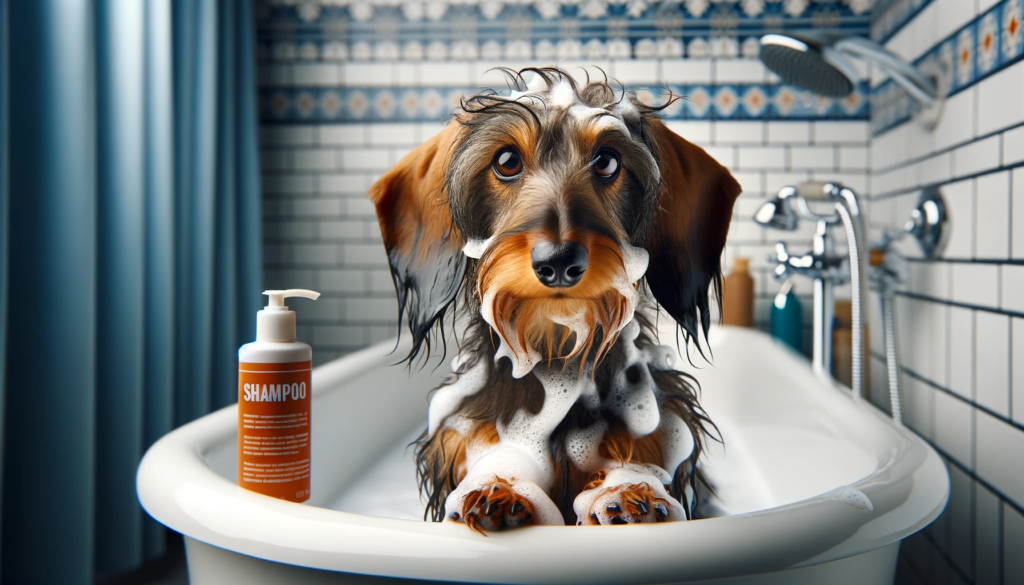
The Importance of Properly Caring for Your Dog’s Skin & Coat
Regardless of whether or not you choose to use head & shoulders shampoo on your dog, it’s crucial to understand the importance of proper skin and coat care for your furry friend. Regular grooming routine keeps your dog’s coat clean, healthy-looking and shiny.
It helps remove dirt, dead hair, and debris while spreading natural oils evenly throughout the coat. Moreover, proper grooming can prevent certain skin conditions such as hotspots (acute moist dermatitis), matted fur or flea infestations that could lead to an uncomfortable experience for your furry friend.
Taking care of a dog’s skin and coat is essential just as much as any other aspect in pet care. We will delve deeper into the topic of using Head & Shoulders shampoo on dogs in the next section.
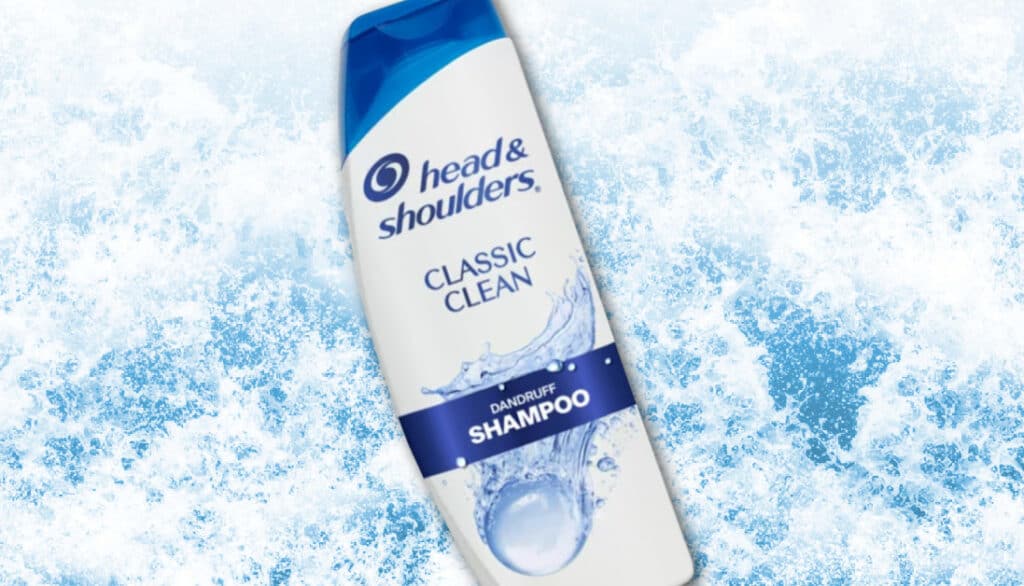
What Is Head and Shoulders
As mentioned earlier, Head and Shoulders is a medicated shampoo created for humans. The active ingredient in the formula is pyrithione zinc which helps to control the growth of malassezia furfur – a fungus known to cause dandruff in humans. It also contains other ingredients such as water, sodium laureth sulfate (SLS), fragrance, sodium lauryl sulfate (SLES), citric acid, etc.
Is It Safe to Use Head and Shoulders on Dogs?
“Yes” and “no” are both answers to this. Some vets endorse careful, limited use of Head and Shoulders. Others caution against it. The hesitation is due to the shampoo’s strong chemicals, which can harm if misused or overused.
SLS/SLES are key ingredients. They’re strong cleansers, capable of removing dirt and oil. However, they can strip away protective skin oils, causing dryness or irritation. The shampoo’s pH is another issue. It’s between 4-5, while pet shampoos are 6-7, more suitable for dogs.
This shampoo’s acidity may harm a dog’s skin acid mantle layer. This raises infection risks. Dogs often lick themselves too, and could ingest shampoo residue. This may cause symptoms like vomiting, diarrhea, or stomach discomfort.
Before using Head and Shoulders on your dog, it’s best to consult with a veterinarian first. They can assess if it is appropriate for your dog and provide advice on how to use it safely.
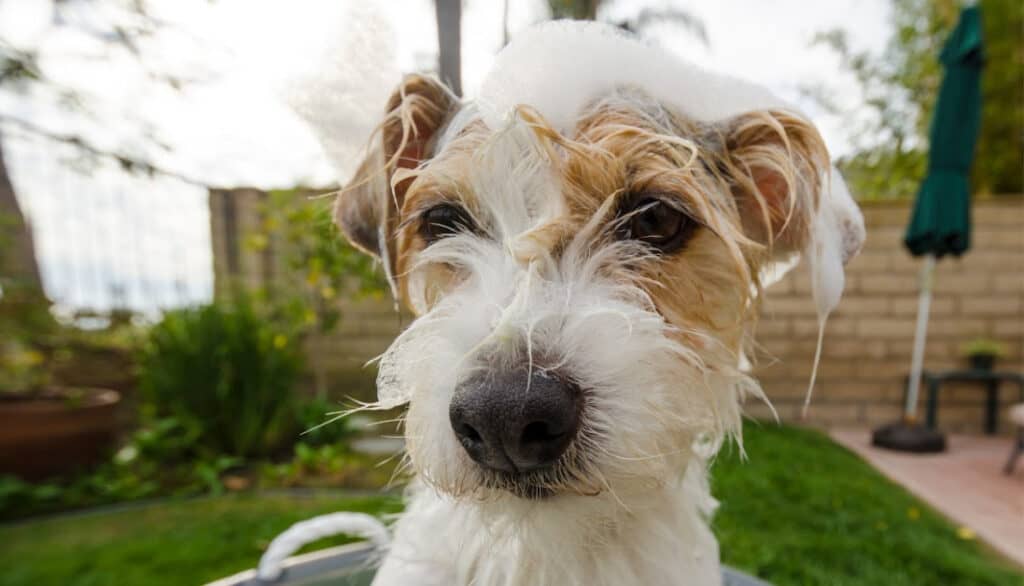
The Benefits of Using Head and Shoulders on Dogs
How it can help with certain skin conditions
Head and Shoulders is commonly known for its ability to effectively treat dandruff and other scalp conditions in humans. However, it can also be beneficial for dogs suffering from similar skin issues. Dandruff or flaky skin on dogs is usually caused by dryness, irritation, or fungal infections.
Head and Shoulders has active ingredients like pyrithione zinc. This fights yeast, bacteria, and fungi that irritate dog’s skin. Using this shampoo can ease symptoms of uncomfortable hot spots in dogs.
A hot spot is a moist, inflamed wound. It results from constant chewing or licking a body spot. Head and Shoulders’ anti-fungal properties can treat these spots. It eliminates bacteria and fungi. The moisturizing properties also soothe the area.
How it can improve the appearance of a dog’s coat
In addition to treating specific skin conditions, using head & shoulders on your dog regularly can also help improve their overall appearance. The shampoo contains moisturizing agents like glycerin that hydrate dry hair follicles making them appear shinier with time.
If your furry friend has dull fur or sheds excessively then using head & shoulders may help restore luster to their coat while reducing shedding at the same time; two benefits that every pet owner will appreciate. Another important consideration when using head & shoulders on dogs is that they come in various formulas designed specifically for different hair types so you get an even better performance boost when you choose a product suited to your dog’s specific coat type.
Head & Shoulders shampoo has been shown to be helpful in treating several skin conditions in dogs and can also improve the look and feel of their coat. However, it is important to use the shampoo with caution and in moderation because overuse or misuse can cause adverse reactions such as dryness or irritations.
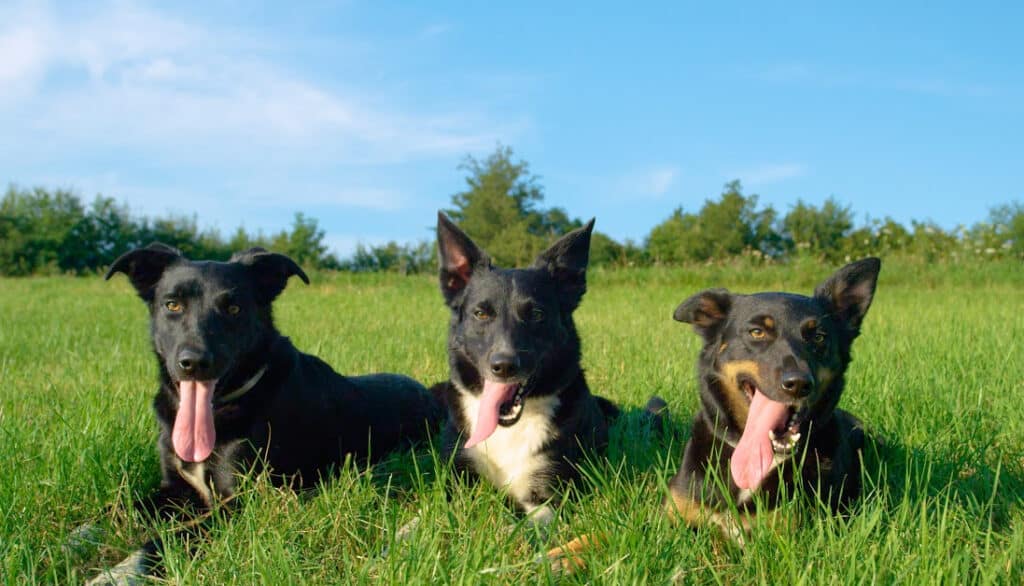
The Risks of Using Head and Shoulders on Dogs
Possible Allergic Reactions
Just like humans, dogs can have an allergic reaction to certain ingredients in shampoo. Head and Shoulders contains many different chemicals, including zinc pyrithione, which is used to treat dandruff in humans. However, this chemical can cause skin irritation and allergic reactions in dogs.
Symptoms of an allergic reaction include itching, redness, swelling, and even hives. If you notice any of these symptoms after using Head and Shoulders on your dog, stop using it immediately and consult your veterinarian.
Overuse Leading to Dry Skin
Using too much shampoo or using it too frequently can also lead to dry skin in dogs. Head and Shoulders is designed for human scalps, which are different from dog skin.
Dogs have a thinner dermis layer than humans do, so their skin is more sensitive to harsh chemicals found in shampoo. Overuse of Head and Shoulders can strip away the natural oils that keep your dog’s coat healthy and moisturized.
This can lead to dryness and flakiness of the skin as well as dull looking fur. To avoid overusing Head and Shoulders on your dog’s coat try limiting use to once a month or less frequent if they don’t have any specific conditions such as dandruff that require more frequent application.

All-Natural Alternatives
If you’re concerned about the risks associated with using Head & Shoulders on your furry friend’s coat but still want an effective treatment option for common skin irritations like dandruff or itchiness there are many all-natural alternatives available! Aloe vera gel has been shown to be effective in treating various kinds of skin issues including itchiness caused by allergies or insect bites.
You could also opt for oatmeal shampoo, which has been shown to be very effective at treating dry and itchy skin in dogs. Additionally, olive oil can help moisturize your dog’s coat and soothe any itchiness or dryness.
Consult with Your Veterinarian
Ultimately, it’s best to consult with your vet before using any kind of shampoo on your dog’s coat to ensure they don’t have any underlying conditions that require specialized treatment. They may recommend a specific product or brand based on your dog’s needs or recommend alternative natural remedies that are safer for use on dogs. While Head & Shoulders might seem like an easy solution for treating dandruff in dogs, it does come with some potential risks such as allergic reactions and overuse leading to dry skin.
There are many all-natural alternatives available as well as specialized products designed specifically for use on pets that can be just as effective without the added risks. Consult with your veterinarian before trying any new products on your pet’s coat!
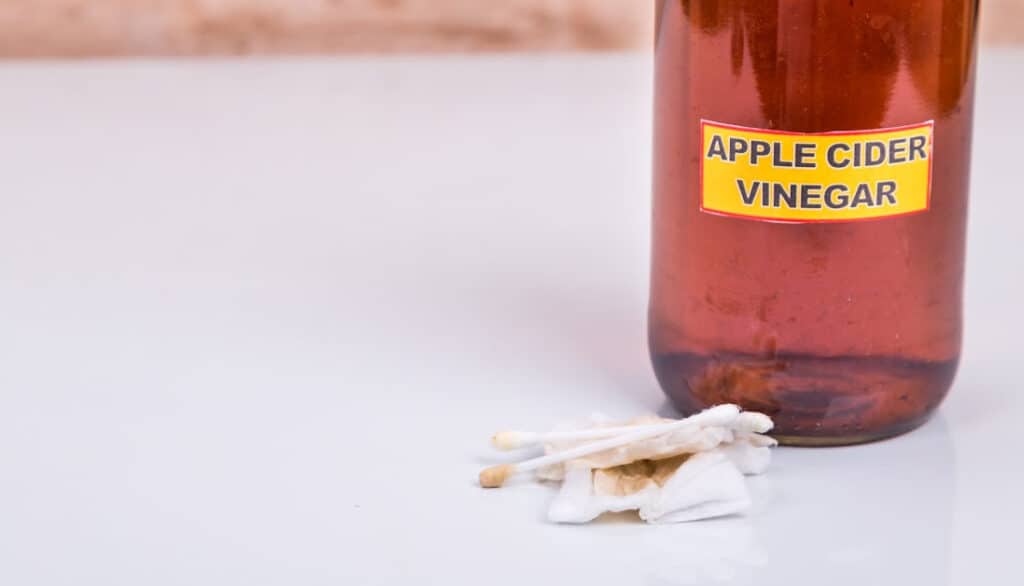
Alternatives to Head and Shoulders for Dogs
Natural remedies for common skin conditions
While Head and Shoulders may be effective for some dogs, it’s not always the best solution. Some dogs may have sensitive skin or allergies that could react negatively to certain ingredients in commercial shampoos. In these cases, natural remedies are a great alternative.
One popular natural remedy is oatmeal. Oatmeal contains anti-inflammatory properties that can soothe irritated and itchy skin.
To use oatmeal for your dog’s bath, grind up plain oatmeal in a blender or food processor until it becomes a fine powder. Then mix the powder with water until it forms a paste-like consistency.
Apply the paste to your dog’s coat and let sit for at least 10 minutes before rinsing off. Another natural remedy is apple cider vinegar.
Apple cider vinegar has antimicrobial properties that can help fight bacteria and yeast on your dog’s skin. Mix equal parts apple cider vinegar and water in a spray bottle, then spray onto your dog’s coat after their bath.
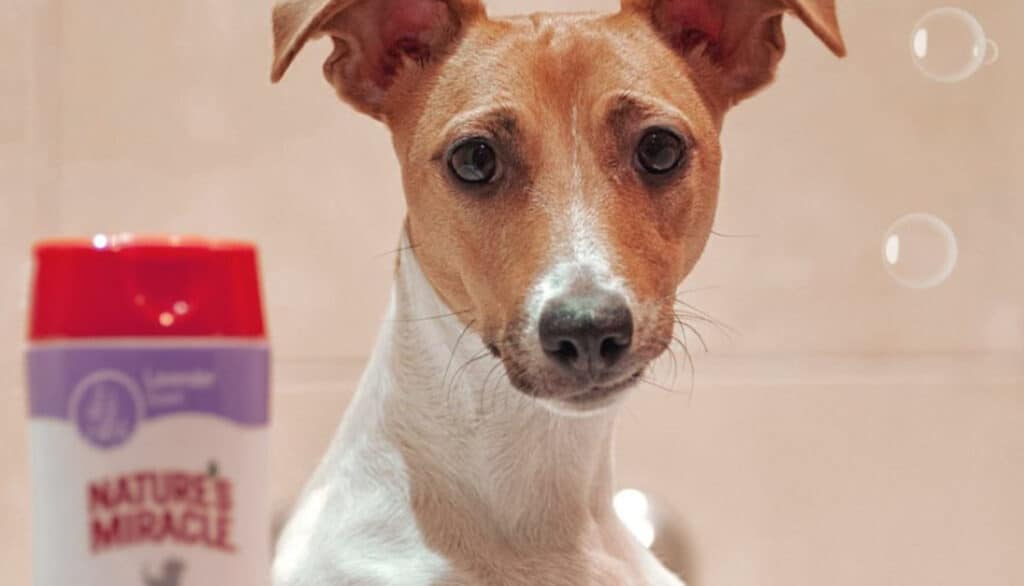
Dog-Specific Shampoos
Dog-specific shampoos are designed specifically for a dog’s delicate skin and coat needs. These shampoos are pH-balanced, meaning they won’t strip away essential oils from your dog’s coat or cause dryness like some human shampoos can.
When choosing a dog shampoo, look for ones that contain natural ingredients like chamomile or lavender oil which have calming properties that can help soothe irritated skin. Also consider whether you want to buy an all-purpose shampoo or one tailored to specific needs such as flea prevention or medicated formulas for certain conditions.
Some popular brands of dog shampoo include Earthbath, Burt’s Bees, and Isle of Dogs. If you’re looking for an alternative to Head and Shoulders for your dog, natural remedies and dog-specific shampoos are both excellent options.
These products can leave your dog’s skin and coat feeling healthy and refreshed without the risk of harsh chemicals or allergic reactions. Be sure to do your research to find the best product for your furry friend’s specific needs.
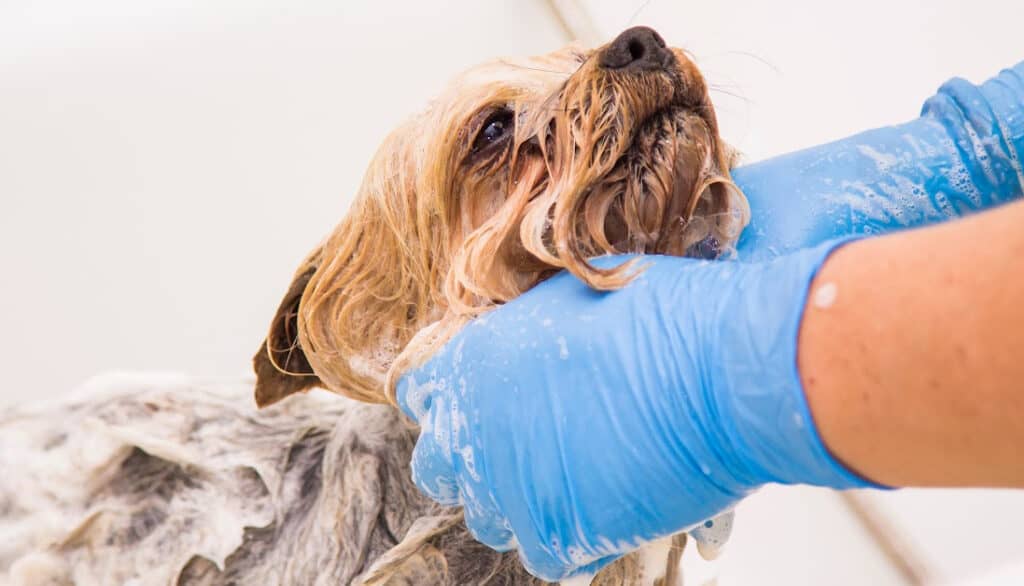
How to Safely Use Head and Shoulders on Dogs
Now that we have discussed the benefits and risks of using Head and Shoulders on dogs, let’s talk about how to use it safely. It is important to follow some guidelines to ensure that your furry friend stays healthy and happy.
Proper Dilution Ratios
The first thing you need to know when using Head and Shoulders on your dog is how much to dilute it. It is essential always to dilute the shampoo before applying it to your dog’s skin.
The appropriate ratio depends on the type of shampoo you are using, so make sure you read the label carefully. A general rule of thumb is a 1:1 ratio for mild cases or up to 1:5 for more severe conditions.
In any case, do not use concentrated formulas as they can harm your pet’s skin. If you are unsure about what ratio is best for your dog, consult with a veterinarian or a professional groomer before using any new shampoo products.
Frequency of Use
The frequency in which you bathe your dog with Head and Shoulders also plays an important role in keeping them healthy. While it may be tempting always to keep them clean, over-bathing can dry out their skin leading to further problems such as itchiness or flaking. We recommend bathing your dog no more than once every three weeks with Head and Shoulders unless explicitly directed otherwise by a vet. However, if the dog has a specific condition that requires frequent baths with medicated shampoos containing pyrithione zinc as an active ingredient (the main component of Head & Shoulders), then bathing once weekly may be okay.
In any case, pay attention to how your dog reacts to the shampoo and adjust accordingly. If you notice any unusual symptoms such as rashes, redness, or excessive scratching, discontinue use immediately and contact a veterinarian.
Remember that Head and Shoulders is not a substitute for regular grooming practices such as brushing your pet’s coat daily or cleaning their ears regularly. These practices are essential to keep your pup healthy and happy.

Conclusion
Using Head and Shoulders on dogs can be beneficial but also carries some risks, so it’s important to weigh the pros and cons carefully. If you do decide to try Head and Shoulders on your pet, make sure you take all necessary safety precautions such as properly diluting the shampoo prior to use.
Alternatively, consider trying some natural remedies or dog-specific shampoos that can provide similar benefits without the potential risks. Ultimately, what’s most important is taking good care of your dog’s skin and coat to keep them healthy, happy, and comfortable for years to come!
~Sheena
